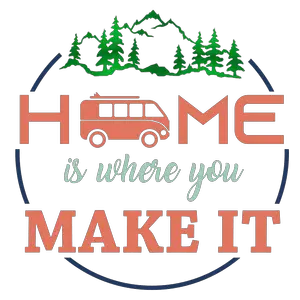Hey! This site is reader-supported and we earn commissions if you purchase products from retailers after clicking on a link from our site.
There are many variables to determine whether or not you need to obtain a special license to drive or pull an RV, and they vary from state to state. For example, in my home state of Michigan, it is illegal to tow a trailer with another trailer. However, there is one exception to this rule and that is if you are towing a fifth wheel, you are allowed to tow another trailer behind your 5th wheel with a special endorsement on your driver’s license.
Most states that do have requirements, base their laws on factors such as the weight and length of your RV. First, we’ll look at the states that require you to have a commercial driver’s license which is commonly referred to as a CDL.
States that require a CDL
- Arkansas: Here, you are required to have a CDL if your RV is over 26,000 lbs.
- Connecticut: A class B commercial driver’s license is required if your vehicle is over 26,000 lbs., with a class A required if your combined weight of the tow vehicle and trailer exceed 26,000 lbs.
- Hawaii: A class B commercial driver’s license is required if your vehicle is over 26,000 lbs., with a class A required if your combined weight of the tow vehicle and trailer exceed 26,000 lbs.
- Kansas: A class B commercial driver’s license is required if your vehicle is over 26,000 lbs., with a class A required if your combined weight of the tow vehicle and trailer exceed 26,000 lbs.
- New Mexico: A class B commercial driver’s license is required if your vehicle is over 26,000 lbs., with a class A required if your combined weight of the tow vehicle and trailer exceed 26,000 lbs.
- Washington D.C.: A class B commercial driver’s license is required if your vehicle is over 26,000 lbs., with a class A required if your combined weight of the tow vehicle and trailer exceed 26,000 lbs.
- Wisconsin: A CDL is required for any vehicle over 45 feet in length.
Are there states that don’t require a CDL but still have special requirements?
Yes, some states have various classes of licenses or special privileges known as endorsements that are noted on your license. For example, in Michigan if you want to drive a limousine or taxicab, you need a chauffeur’s endorsement which allows you to legally carry up to 14 passengers for hire. Below, you will find a list of these states and what the requirements are to legally drive your RV if you are from there.
- California: Here you are required to have a class A license if you are towing over 10,000 lbs. and a class A license is required if your exceeds 26,000 lbs. or are over 40 feet in length.
- Maryland: A class B license is required for any vehicle over 26,000 lbs.
- Michigan: The only endorsement in Michigan needed for driving an RV is known as a “Double R” which is required when you are pulling a trailer behind a 5th Most people will never need this endorsement, but when I lived in Michigan I owned a fifth wheel and needed this endorsement to pull my small fishing boat behind me.
- Nevada: In this state a class A license is required if your truck and trailer is over 26,000 lbs., and a class B license is required for single vehicles over 26,000 lbs. Nevada also has what is known as the “J” endorsement which is required if you are towing a trailer over 10,000 lbs., but under a combined weight of 26,000 lbs.
- North Carolina: A class B license is required for a single vehicle over 26,000 lbs. and a class A license is required for multiple vehicles with a combined weight over 26,000 lbs.
- New York: Here you are required to have an “R” endorsement if your weight exceeds 26,000 lbs.
- Pennsylvania: A class B license is required if you are operating a single vehicle or combined vehicles with a weight of over 26,000 lbs.
- South Carolina: This state requires a class E license if your single vehicle is above 26,000 lbs. and a class F license if your combined weight is over the same amount.
- Texas: A class B license is required for single vehicles over 26,000 lbs. and a class A license is required for multiple vehicles with a combined weight over 26,000 lbs.
- Wyoming: Here you need to have a class A license if you are over 26,000 lbs. and towing over 10,000 lbs., and a class A license if you are over 26,000 lbs. and towing a vehicle under 10,000 lbs.
So there you have it, if your state wasn’t listed here then you are good to go without having to visit your nearest DMV to get properly endorsed or licensed in the state where you live. If you noticed here, most states base their restrictions on weight and the common number is 26,000 lbs., so if you are driving a class C or class B unit you probably won’t have to deal with getting a CDL or special endorsements.
Now that you’re properly licensed, in my next article, we will look at driving and some tips on how best to safely handle the roads through mountains, cities, and other places you may find yourself while traveling. In the meantime, safe travels to you and remember, home is where you make it.
As long as you’re searching for driving tips, read some of my other related articles.



